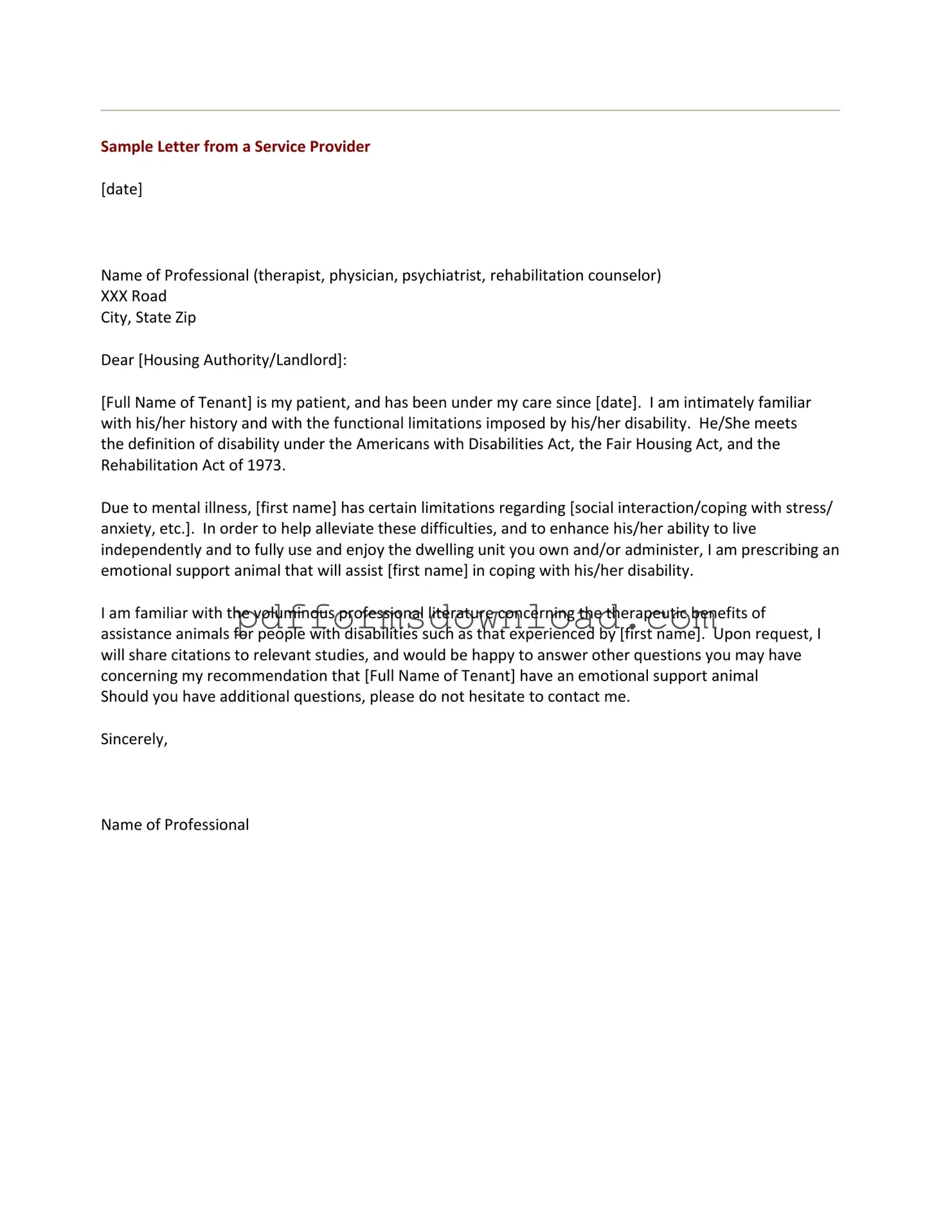What is an Emotional Support Animal (ESA) letter?
An Emotional Support Animal letter is a document provided by a licensed mental health professional. This letter indicates that an individual has a mental health condition and that an emotional support animal can help alleviate some of the symptoms associated with that condition. It is important to note that an ESA letter does not provide the same rights as a service animal letter, but it does offer certain protections under housing laws.
Who can write an ESA letter?
Only licensed mental health professionals can write an ESA letter. This includes psychologists, psychiatrists, licensed clinical social workers, and licensed therapists. It is essential that the professional has a legitimate therapeutic relationship with the individual seeking the letter. They must evaluate the individual’s mental health needs before issuing the letter.
What information should be included in an ESA letter?
An effective ESA letter should contain specific information. This includes the mental health professional's contact information, license number, and the date of issuance. The letter should also state that the individual has a diagnosed mental health condition and that an emotional support animal is part of their treatment plan. Additionally, it should be printed on the professional's letterhead.
How do I obtain an ESA letter?
To obtain an ESA letter, start by scheduling an appointment with a licensed mental health professional. During the appointment, discuss your mental health needs and how an emotional support animal could benefit you. If the professional agrees that an ESA would be helpful, they will draft the letter for you. Make sure to ask any questions you may have about the process or the letter itself.
Can I use an ESA letter for housing and travel?
Yes, an ESA letter can provide certain protections under the Fair Housing Act, allowing individuals to live with their emotional support animal in housing that may otherwise have restrictions. However, for travel, airlines have their own policies regarding emotional support animals, and it is crucial to check these policies before flying. Some airlines may require additional documentation or may have changed their policies regarding ESAs.
Is there a difference between an ESA and a service animal?
Yes, there is a significant difference. Service animals are specifically trained to perform tasks for individuals with disabilities, such as guiding a person who is blind or alerting someone with hearing loss. Emotional Support Animals, on the other hand, provide comfort and support but are not trained to perform specific tasks. As a result, the legal protections and access rights for service animals are broader than those for emotional support animals.
How often do I need to renew my ESA letter?
The need to renew an ESA letter can vary based on the policies of landlords or airlines. Generally, it is a good idea to renew your letter annually or whenever your mental health professional believes it is necessary. This ensures that your documentation remains up to date and valid, providing you with the necessary support when needed.

